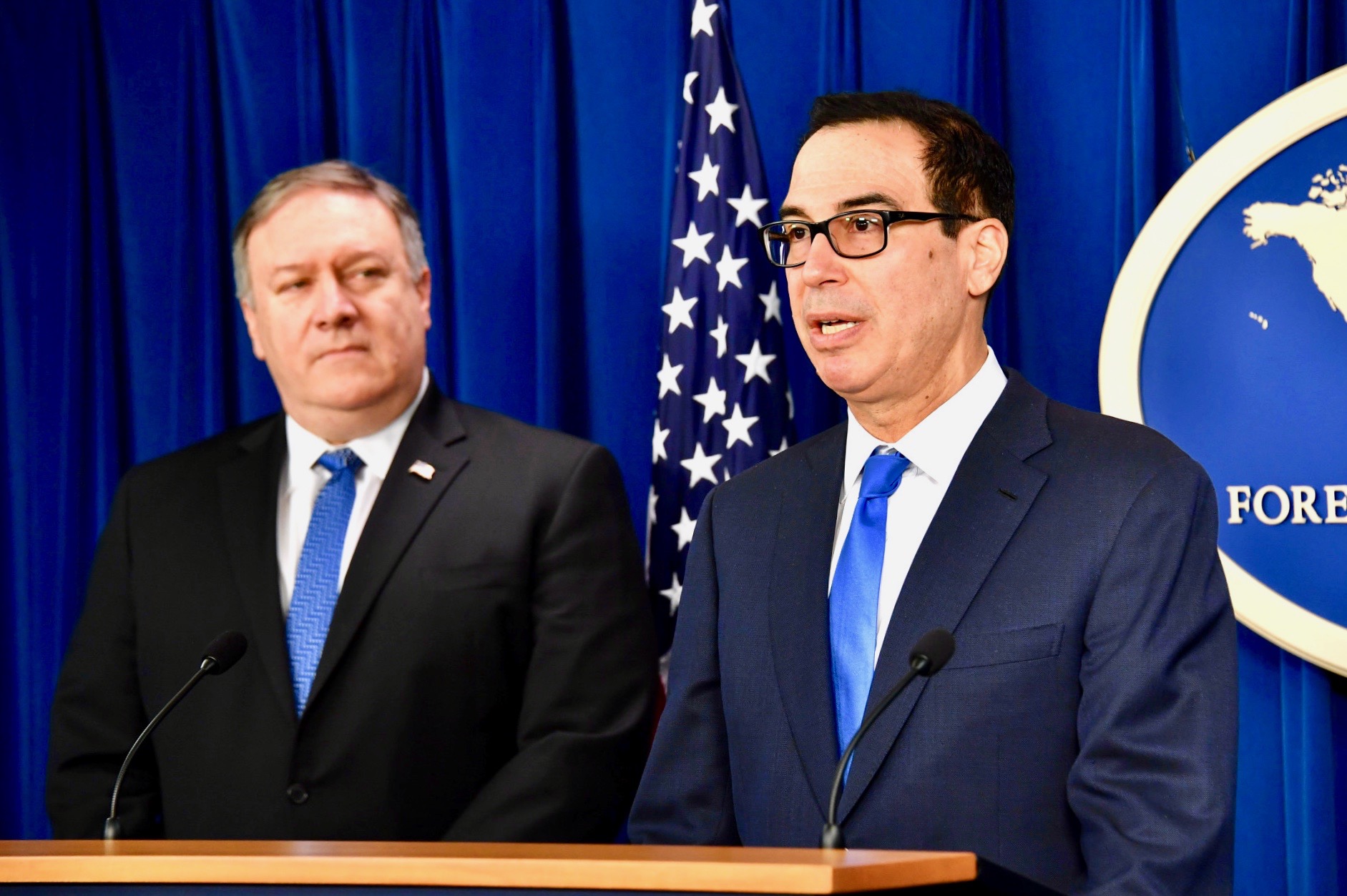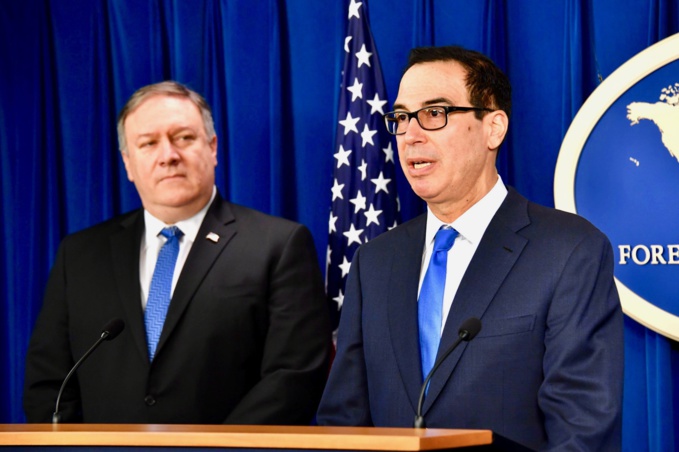The US is preparing a new strike on Iran. The United States intends to impose new sanctions on the Islamic Republic, which will hit those sectors of the economy that were not previously affected by restrictive measures. This was reported by Reuters, referring to a high-ranking representative of the Presidential Administration Donald Trump.
According to him, the United States wants to preserve the "cooling effect" in the Iranian economy. “We want the business to continue to believe that it is now a terrible idea to do business with Iran,” said the government official. He argues that new sanctions may be introduced in May of this year.
Washington resumed sanctions rhetoric against Iran last March, accusing Tehran of failing to fulfill the nuclear deal and announcing imminent withdrawal of the United States from the Joint Comprehensive Plan of Action on Iran Nuclear Issue, and resumption of frozen sanctions against this country.
After that, the United States began to impose anti-Iran sanctions. The first block of restrictive measures by the United States implied restrictions on trade with Tehran in gold and a number of metals, operations with its national currency and national debt, as well as a ban on sale of dollars to the Iranian government. Also, the United States banned export of Persian carpets.
The second, autumn block of US sanctions, was already more serious. The restrictions concerned the energy sector of Iran, transactions related to hydrocarbons, and transactions related to the central bank of Iran. Iran was disconnected from the international interbank SWIFT system. The only concession that was made in the United States allowed a number of countries to continue to export oil from Iran for six months. Among them were Greece, India, Italy, China, Taiwan, Turkey, South Korea and Japan.
At the same time, even before introduction of sanctions, investors and foreign partners began to leave Iranian energy projects.
In May, the deadline for the above-mentioned exception ends. Since the United States previously stated that one of the goals was to completely nullify deliveries, then, most likely, Washington will adhere to this plan.
However, America is unlikely to completely ban the export of oil from Iran. Perhaps there will be a total ban on purchase of oil from Iran in respect of some of the eight countries. For example, it could be Italy and Greece, which already reduced their imports to zero. Or, alternatively, there will be a requirement for a certain quota of the maximum possible level of supply with its gradual decrease.
The most aggressive scenario implies a total ban on the purchase of Iranian oil as early as May, but its likelihood is assessed as low. This would lead to an increase in oil prices, and a barrel of oil above $ 70 does not suit Donald Trump. Thus, strict restrictions on supply in this case are questionable, because it will contribute to further growth of quotations.
Meanwhile, Iran is clearly experiencing not the best of times even without new US sanctions. According to the IMF, inflation in recent months has accelerated in the country to 30% (the real rate has lost half of its value since the beginning of the year), and budget revenues continue to decrease.
source: bloomberg.com, reuters.com
According to him, the United States wants to preserve the "cooling effect" in the Iranian economy. “We want the business to continue to believe that it is now a terrible idea to do business with Iran,” said the government official. He argues that new sanctions may be introduced in May of this year.
Washington resumed sanctions rhetoric against Iran last March, accusing Tehran of failing to fulfill the nuclear deal and announcing imminent withdrawal of the United States from the Joint Comprehensive Plan of Action on Iran Nuclear Issue, and resumption of frozen sanctions against this country.
After that, the United States began to impose anti-Iran sanctions. The first block of restrictive measures by the United States implied restrictions on trade with Tehran in gold and a number of metals, operations with its national currency and national debt, as well as a ban on sale of dollars to the Iranian government. Also, the United States banned export of Persian carpets.
The second, autumn block of US sanctions, was already more serious. The restrictions concerned the energy sector of Iran, transactions related to hydrocarbons, and transactions related to the central bank of Iran. Iran was disconnected from the international interbank SWIFT system. The only concession that was made in the United States allowed a number of countries to continue to export oil from Iran for six months. Among them were Greece, India, Italy, China, Taiwan, Turkey, South Korea and Japan.
At the same time, even before introduction of sanctions, investors and foreign partners began to leave Iranian energy projects.
In May, the deadline for the above-mentioned exception ends. Since the United States previously stated that one of the goals was to completely nullify deliveries, then, most likely, Washington will adhere to this plan.
However, America is unlikely to completely ban the export of oil from Iran. Perhaps there will be a total ban on purchase of oil from Iran in respect of some of the eight countries. For example, it could be Italy and Greece, which already reduced their imports to zero. Or, alternatively, there will be a requirement for a certain quota of the maximum possible level of supply with its gradual decrease.
The most aggressive scenario implies a total ban on the purchase of Iranian oil as early as May, but its likelihood is assessed as low. This would lead to an increase in oil prices, and a barrel of oil above $ 70 does not suit Donald Trump. Thus, strict restrictions on supply in this case are questionable, because it will contribute to further growth of quotations.
Meanwhile, Iran is clearly experiencing not the best of times even without new US sanctions. According to the IMF, inflation in recent months has accelerated in the country to 30% (the real rate has lost half of its value since the beginning of the year), and budget revenues continue to decrease.
source: bloomberg.com, reuters.com



















